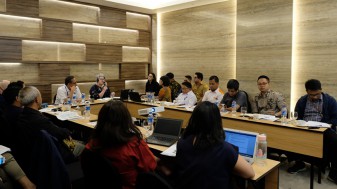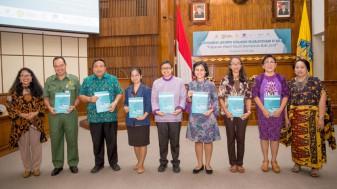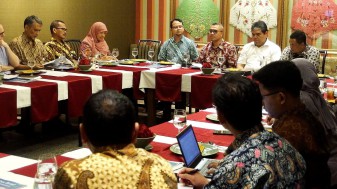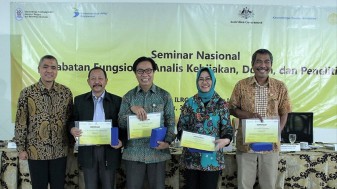As reported in the last monthly update, KSI supported in September a national seminar on “Policy Analysts, Lecturers and Researchers”. The seminar allowed participants to discuss the dynamics around these functional positions that lack the authority and monetary incentives provided to structural staff, and therefore are less attractive and hinders the application of knowledge to a policy by building a gap between knowledge producer and policy makers. The engagement with the Ministry of Research, Technology and Higher Education (MoRTHE) continued on 21-22 October in Lombok where KSI and university-based research partners participated in a focus group discussion for the formulation of an academic background paper to provide policy recommendation on development of human resource management of lecturers and researchers in universities. The major issues focused on recruitment, division of tasks between teaching and researching, and career path for researchers. Recommendations include:
- Unlike the situation today, the civil service recruitment process at universities need to be treated differently compared to ministerial and local governments’ officials.
- Based on international experiences, the minimum qualification of lecturers in Indonesia should be doctoral degree. However, the Law on the Lecturers and Teachers mandates only master degrees.
- The implementation of the “three functions of universities” (Tridharma Perguruan Tinggi) should be identified clearly and comprehensively and focus on universities rather than individual lecturers.
- The introduction of “government employee contract staff” (P3K) in the 2014 law on civil servants (UU 5/2014) provides an opportunities to address identified issues such as improved movements and competitive recruitment, although concerns around salaries and job security need to be addressed.
- Presently, the functional position of researcher is under the oversight and auspices of LIPI, without strong coordination with MoRTHE. Coordination between the two agencies is needed to clarify career paths and linkages to universities and the policy use of their reseach.
- Affirmative action and policy are needed to tackle the issue of quality of lecturers in eastern Indonesia.
The workshop ended with a commitment to continue to include KSI partners and stakeholders in the drafting of the MoRTHE’s white paper.





